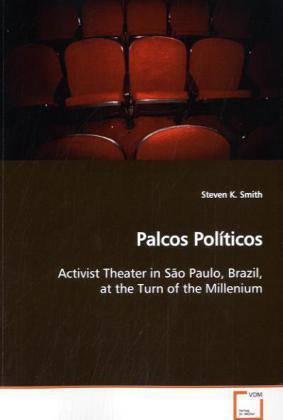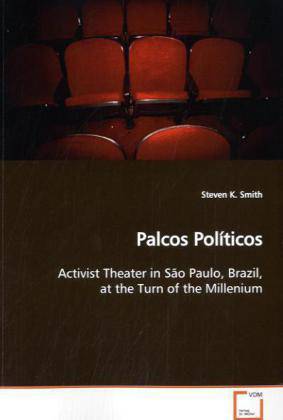
- Afhalen na 1 uur in een winkel met voorraad
- Gratis thuislevering in België vanaf € 30
- Ruim aanbod met 7 miljoen producten
- Afhalen na 1 uur in een winkel met voorraad
- Gratis thuislevering in België vanaf € 30
- Ruim aanbod met 7 miljoen producten
Zoeken
Palcos Políticos
Activist Theater in São Paulo, Brazil, at the Turn of the Millenium
Steven K Smith
Paperback | Engels
€ 77,95
+ 155 punten
Omschrijving
São Paulo, Brazil, boasts one of the most dynamic theater scenes in the world. While it is generally agreed that an engaged, activist theater once existed there, it is widely held that meaningful, sociopolitically engaged dramatic production ceased with the end of the military dictatorship in 1985. This book contends that activist theater is in fact thriving and that recent years have seen significant growth in dynamic, engagé theater in São Paulo. After laying out a theoretical framework, this book examines how two of the greatest names in activist theater, Augusto Boal and Bertolt Brecht, interact and how they fit into the broader context of theater history. Chapters two and three examine two specific activist theater troupes in depth: Folias d'Arte and Teatro União e Olho Vivo, the latter more established and working in poor peripheral neighborhoods and the former relatively new and centered in the bustling center of South America's largest metropolis. Chapter four offers a more panoramic view of the current state of the overall contemporary activist theater scene in São Paulo, clearly showing that sociopolitically engaged theater is alive and well in that city.
Specificaties
Betrokkenen
- Auteur(s):
- Uitgeverij:
Inhoud
- Aantal bladzijden:
- 204
- Taal:
- Engels
Eigenschappen
- Productcode (EAN):
- 9783639117462
- Verschijningsdatum:
- 12/03/2009
- Uitvoering:
- Paperback
- Formaat:
- Trade paperback (VS)
- Afmetingen:
- 152 mm x 229 mm
- Gewicht:
- 303 g

Alleen bij Standaard Boekhandel
+ 155 punten op je klantenkaart van Standaard Boekhandel
Beoordelingen
We publiceren alleen reviews die voldoen aan de voorwaarden voor reviews. Bekijk onze voorwaarden voor reviews.











